Visiting to honour South Shields-born soldier Pvt Lawrence Gillan, 107 years on
and live on Freeview channel 276
The unfortunate young man was my dad’s uncle, killed in 1915. We knew he had a marked grave, unlike the 600,000 or so other World War One fallen who lay beneath “unknown” headstones. Regrettably we had otherwise been given duff information.
Roll forward many years, beyond the advent of the internet. The grave subjected to our fruitless search was in fact in the small town of Bailleul, northern France, about 10 miles from Ypres and two miles from the Belgian border.
We had been looking in the wrong country.
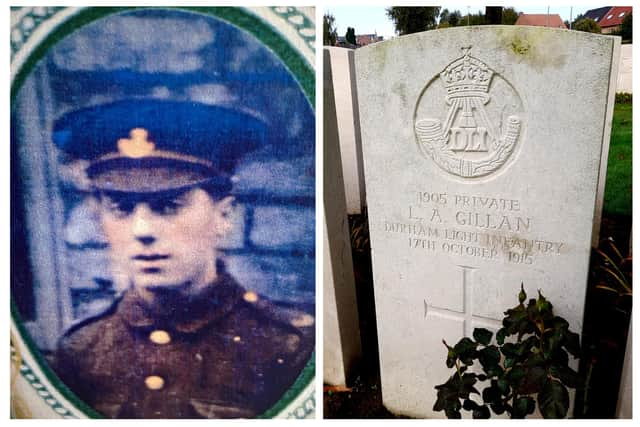

Advertisement
Hide AdAdvertisement
Hide AdFor my dad the opportunity for another search would never arise. Life got in the way. Our failure to find the grave frustrated him until his own dying day, in January 2022.
I believe I am correct to say that the grave had never been visited. Until very recently.
Pvt Lawrence A Gillan
The soldier in question was Lawrence Albert Gillan born December 17, 1896, the second of Robert and Margaret Gillan’s nine children and the only one not born in Sunderland. He first drew breath in South Shields. One of his brothers was Tony Gillan (1910-92), my granddad.
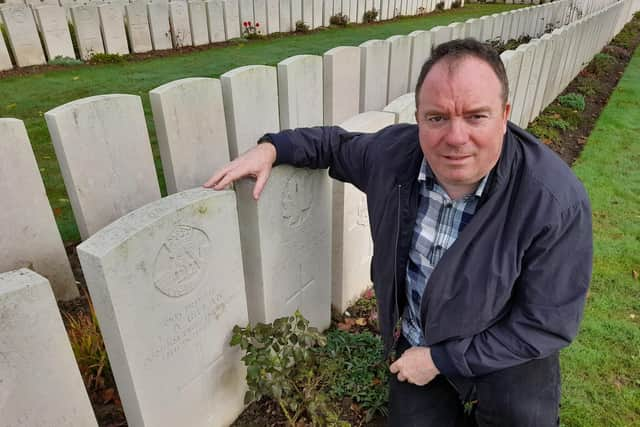

So Lawrence was my great-uncle (and great-great uncle of the actor Karen Gillan for those interested in such things; her granddad was also called Lawrence Gillan, in his late uncle’s honour).
Advertisement
Hide AdAdvertisement
Hide AdWhen Britain declared war on Germany in August 1914, Lawrence, an apprentice blacksmith according to the 1911 census, was among the first to enlist, although at 17 he wasn’t quite old enough.
It’s a familiar tale. He lied about his age to ensure three meals a day and a salary from the Durham Light Infantry.
The main reason for this is simple and equally familiar. Sheer poverty. Although jingoistic recruitment officers, on commission, were not always overly meticulous and would fill the heads of teenagers with magic.
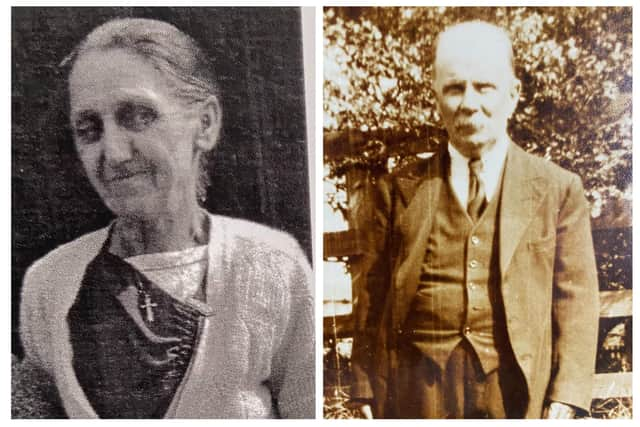

The mendacious phrase “Over by Christmas” became a virtual advertising slogan for what was actually an invitation to carnage. Lawrence was among millions conned into joining a war he probably didn’t understand. But he thought he looked great in his uniform.
Advertisement
Hide AdAdvertisement
Hide AdHis mother was horrified and responded with admonishment as strongly worded as her Victorian propriety would allow. She later claimed to know that her son would never return and fully expected “the letter”.
My grandfather could recall his big brother and dimly remembered playing with his rifle, but would never see Lawrence’s grave. My granddad never left Britain – and foreign travel was not an option for his indigent parents.
If you still have grandparents, ask more questions than I did of mine.
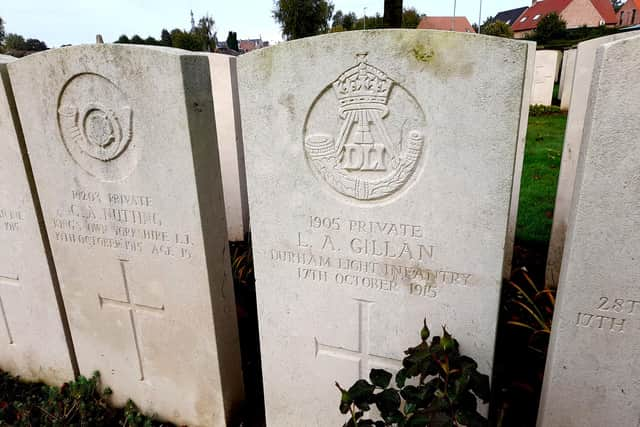

A life soon ended
We knew on that family holiday that Lawrence’s life ended on October 17, 1915. Had he died at Ypres, as we wrongly thought, then it would have been from his wounds some time after the battle. Both Battles of Ypres had ended by then.
Advertisement
Hide AdAdvertisement
Hide AdHowever, the part about being mortally wounded was correct. We eventually discovered that he succumbed to his wounds in the hospital where he spent his final two weeks; possibly dying in agony.
We still don’t know exactly what killed him, or which hospital he died in. All we can conclude is that it was truly horrible.
However, it seems very likely that it was the Battle of Loos which claimed him, as it was fought between September 25 and October 13 of 1915. It ended in German victory.
Loos is not the most famous WWI battle as there were “only” around 70,000 casualties, whereas the Somme, for example, had over a million.
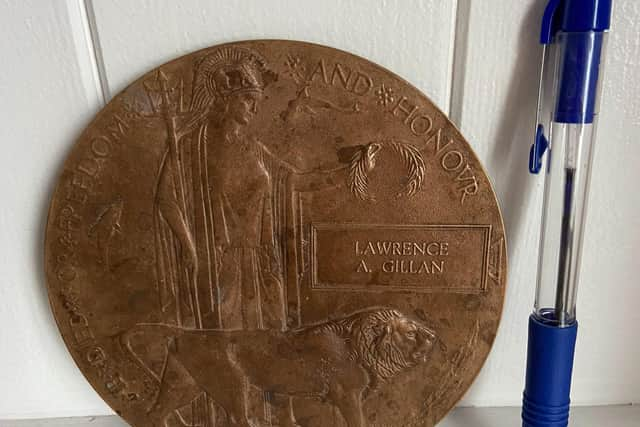

Another war, another brother
Advertisement
Hide AdAdvertisement
Hide AdLawrence’s parents, Robert and Margaret, lived until 1959 and 1952 respectively. They were hardly a rarity among their generation in losing a child to war.
What is slightly unusual is that 11 months after losing Lawrence they had a ninth and final child to whom they gave the exact same name, Lawrence Albert Gillan. To avoid confusion, the new son was known by his middle name. He would grow up wondering about the brother he never met.
When World War Two began, Albert was working as a bricklayer in Burnley and was conscripted into the Lancashire Fusiliers. We can only imagine what went through the minds of his parents.
Albert saw much action, notably at Monte Cassino in 1944. But he survived the war and lived to be 86. However, Robert and Margaret couldn’t know that in 1939.
2022
Advertisement
Hide AdAdvertisement
Hide AdOn October 3, 2022 I finally made it to Bailleul and Lawrence’s grave; a corner of a foreign field that is for ever England. It felt as though a wrong had been righted, although it was a strange experience.
The headstone gives his date of death but, tellingly, not his age.
I’m not sure how I felt, but was pleased that after 107 years the grave had finally been visited.
It has been claimed, quite insultingly, that the Battle of Waterloo was “won on the playing fields of Eton”. It isn’t known who said this, but the search should begin with a buffoon, then work downwards. That isn’t how battles work, be it Waterloo, Agincourt, Basra – or Loos.
Advertisement
Hide AdAdvertisement
Hide AdAnd whoever said it should apologise to the likes of Pvt Lawrence Gillan.
My visit to Lawrence in the beautifully tended war grave section of the cemetery was extremely worthwhile. I didn’t learn much, yet it reaffirmed that 107 years is not really such a long time. About a mile away Ukrainian refugees were picking fruit.
*Our thanks to Jennifer Bainbridge